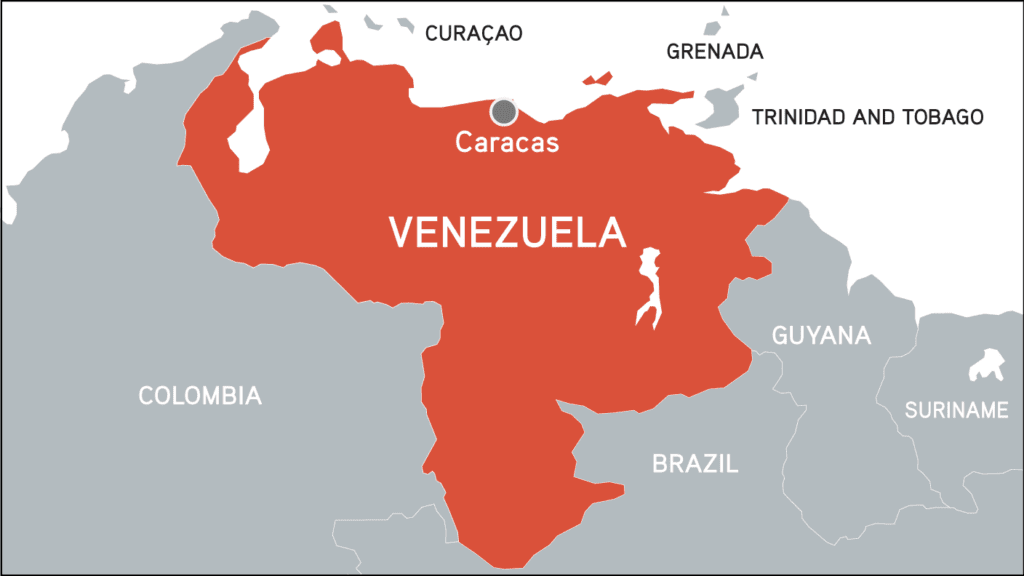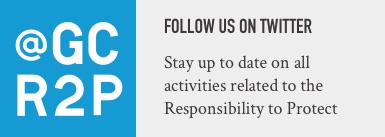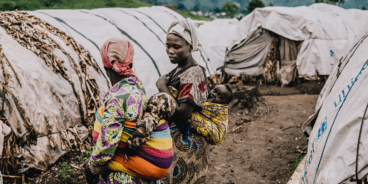
Venezuela
Ongoing state-led repression and systematic human rights violations in Venezuela may amount to crimes against humanity.
BACKGROUND:
Following years of endemic corruption and the gradual erosion of the rule of law and democratic space, in 2014 mass protests erupted in Venezuela in response to insecurity, hyperinflation and a lack of essential services. Security forces reacted with disproportionate force, torture and sexual violence. Since then, the Venezuelan government under President Nicolás Maduro, including its security and intelligence apparatus, has perpetrated systematic arbitrary detention, torture and ill-treatment, sexual and gender-based violence and short-term enforced disappearances targeting actual and perceived opponents. Various security forces have also allegedly perpetrated tens of thousands of extrajudicial killings in the name of combating crime, predominantly targeting men between 18 and 30 years-old living in low-income neighborhoods.
In 2019 the UN Human Rights Council (HRC) authorized the creation of an independent Fact-Finding Mission (FFM) on Venezuela. The FFM has established on multiple occasions that some violations and abuses committed since at least 2014 were part of a “widespread and systematic attack” against the civilian population and are “part of a plan orchestrated at the highest levels of the government to repress dissent through crimes against humanity.” The government refuses to cooperate with the FFM.
Venezuelan civil society platform HumVenezuela warned that the multidimensional crisis has left an estimated 19 million Venezuelans inside the country in need of assistance. Almost 8 million people have left the country since 2014. Communities across Venezuela are also at heightened risk of egregious abuses by armed groups, criminal gangs or other non-state actors, acting at times with the consent and direct involvement of Venezuelan state agents who have been implicated in possible crimes against humanity.
Several governments, including Canada and Switzerland, have enforced an extensive individual sanctions regime. Since 2017 the European Union (EU) has maintained sanctions against more than 50 senior officials and recently lifted measures against the President of the National Electoral Council (CNE) and other CNE officials as an incentive to allow for a European Electoral Observation Mission. The United States (US) government has also imposed targeted sanctions against the Venezuelan government, as well as broader sectoral sanctions that have exacerbated the country’s pre-existing complex humanitarian emergency.
RECENT DEVELOPMENTS:
On 17 October 2023 the government and groups of opposition parties announced the signing of the Barbados Agreement, which includes an electoral roadmap ahead of presidential elections scheduled for 28 July 2024. While the agreement provided an important opportunity to advance minimum electoral guarantees, government repression has continued to rapidly intensify, with the FFM reporting increased selective repression targeting civil society organizations, trade and labor unionists, independent media, as well as political opponents and their families. As part of a strategy to harness fear and self-censorship among independent voices, since January 2024 the government has announced plans to expedite the adoption of several draft legislations which would further close civic space and facilitate the criminalization of actual or alleged opponents. On 20 March the FFM warned that authorities have reactivated “the most violent form of repression” aimed at silencing opposing voices at any cost. Venezuelan nongovernmental organization Provea recorded 230 attacks against human rights defenders in February alone.
On 26 January the Supreme Court upheld a ban on the leading presidential opposition candidate María Corina Machado amidst ongoing harassment and threats against political opponents. In late March the CNE refused the registration of her chosen replacement candidate. On 21 April the main opposition coalition confirmed Edmundo González’s candidacy; however, it remains unclear whether the government will allow him to participate in the vote.
On 30 April the UN Working Group on Enforced or Involuntary Disappearances warned that opposition members and the military are the primary targets of an alarming rise of enforced disappearances this year, which “appear to follow a pattern whereby individuals are deprived of their liberty by State authorities, taken to recognized detention facilities and denied fundamental rights and protections.”
Despite initially agreeing to expand the presence of the Office of the UN High Commissioner for Human Rights (OHCHR), on 15 February the government demanded the withdrawal of its staff within 72 hours. In late April, President Maduro announced his intention to invite OHCHR to return to Venezuela, should both parties be able to “overcome their differences and conflict.”
On 24 April the Chief Prosecutor of the International Criminal Court (ICC) inaugurated an in-country office in Caracas, while emphasizing that investigations into possible crimes against humanity will be pursued “simultaneously, and without delay.” On 1 March the ICC Appeals Chamber rejected Venezuela’s appeal against a previous assessment by the Court that concluded its domestic investigations are insufficient.
ANALYSIS:
The Venezuelan government is deliberately pursuing policies that enable systematic human rights violations and abuses to silence dissent. Sexual and gender-based violence has been deliberately perpetrated in the context of arbitrary detentions and to ensure control over profitable territory.
Increasing engagement with the ICC and, until recently, OHCHR highlights that the Venezuelan government has been receptive to multilateral pressure. However, no structural changes have been implemented to the country’s judiciary, intelligence or security sector and state actors continue to perpetrate systematic abuses.
Human rights organizations have warned for over two years that presidential and general elections in 2024 and 2025 pose a severe risk of intensifying government repression, similar to previous voting cycles. Increasing targeted persecution, attacks against civic space and a systematic campaign against political opposition, are early warning signs of a deteriorating situation and possible recurrence of atrocity crimes. The suspension of OHCHR has resulted in protection gaps for affected communities across the country.
Venezuela’s judicial system is perpetuating impunity for possible atrocity crimes. Government-linked media outlets also play a key role in state repression and persecution. Independent monitoring, including by the FFM, is essential to prevent the recurrence of crimes against humanity and alert the international community to appropriate prevention strategies, including before, during and after election day.
RISK ASSESSMENT:
-
- Senior government officials involved in the planning and commission of violent acts, including possible crimes against humanity.
- Lack of independent and impartial judiciary, as well as impunity for or tolerance of serious violations of international law, including atrocity crimes.
- Adoption of measures to criminalize civil society organizations and attacks against democratic institutions and electoral guarantees, particularly ahead of scheduled elections.
- Absence of accountable state authority, presence of non-state armed actors and high levels of crime, corruption and illicit economic exploitation in large parts of the country.
- Political motives to continue systematic repression aimed at consolidation of power.
NECESSARY ACTION:
Venezuelan authorities must immediately end the systematic repression of all actual or alleged opponents, release all individuals subject to arbitrary detention and enforced disappearances, revoke draft legislation aimed at effectively closing civic space and implement measures to ensure free and fair elections. The government should also commit to genuine and comprehensive reform and ensure impartial investigations of all serious violations and abuses, including at the highest level, and implement recommendations issued by the UN human rights system.
Regional actors should leverage diplomatic and political pressure on the Maduro government to encourage the reversal of repressive policies. At the HRC’s 57th session, UN member states should adopt a resolution renewing the FFM in full. Cross-regional governments should also push for the return of effective OHCHR presence in Caracas without concessions on its existing protection and reporting mandate.
Latin American governments, the EU, Canada and US should revitalize efforts to build a common roadmap for political engagement with Venezuela which prioritizes human rights protections, accountability and humanitarian relief, while focusing on prevention and mitigation strategies in relation to intensifying targeted repression. The international donor community should expand their support for civil society organizations documenting human rights violations and providing humanitarian relief to populations in need.



